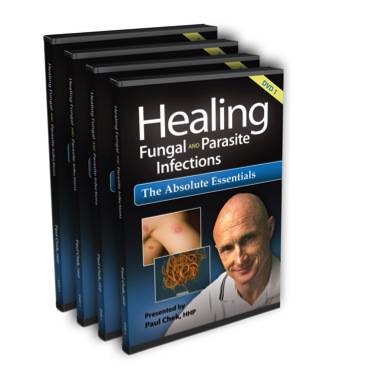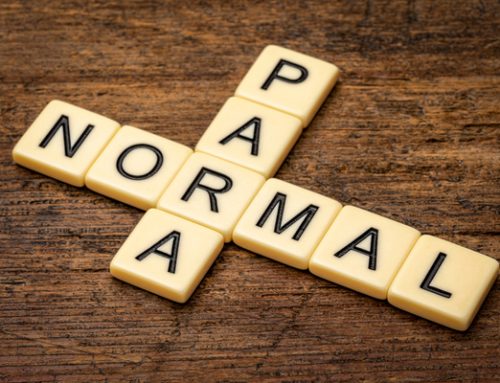Happy Tuesday to You!
I had a fantastic day yesterday with my first client visit to my new location; by the way, I have moved my personal office to a remote location for my personal needs and we are moving the institute to a more efficient location.
Some have misunderstood my move, thinking that the C.H.E.K Institute was shutting down or something like that. The opposite is true. We are downsizing our building and upgrading to more efficient business systems so we can handle more customers and students effectively! Now you have it from the horse’s mouth!(did I say that?).
When I do private coaching consultations, they are largely to help people heal from any number of physical, emotional, or mental imbalances or blockages. It is essential that I gain a strong connection to them, both consciously, and unconsciously. Here you can see my client, Paul Bourne and I doing some rattling work together.
By using rattling, drumming, and a variety of other methods, I can experience their physical expressions, as well as rhythmically harmonizing with them. This allows me to perceive their inner-energy flows and patterns.
From that energetic information, I am lead to the right questions and possible solutions to offer them for healing, or increasing their performance.
Paul Bourne is from Barbados, and he came to me with some debilitating physical problems that eluded diagnosis by the medical profession for many years. In the past year and a half, Paul and I have worked together (while also seeing Ashley Mazurek and Dan Hellman, both CHEK Faculty Instructors) to establish a healthy 4 Doctor living philosophy for himself.
He’s done an amazing job of not only getting tremendously healthier and fitter, but he became a CHEK Practitioner, opened a center in Barbados, and is now working to bring organic food to the island!
Thanks for trusting in me as a teacher and guide to you Paul. What you have achieved in 18 months is incredible, awesome!
DO YOU HAVE A FUNGAL OR PARASITE INFECTION? (Pt.2)
Continuing on from our brief discussion of fungal infections and their symptoms, today I’ll share common symptoms of parasite infection.
Before reading on, it is essential to consider all the information I shared regarding fungal infections as part of any effective parasite prevention or treatment approach.
It is very common for my clients to have both fungal and parasite infections, neither of which can be effectively addressed in the long-run without the other being addressed because either of them can seriously diminish immune function, leaving the door open for the other!
Most of you will read this list and immediately recognize that you very likely are infected, and are likely to get scared, or nervous about it.
The whole reason I’m sharing this information with you is to empower you to learn about why, and how fungal and parasite infections occur and give you the essential knowledge and tools you need to restore and keep optimal health and well-being.
I put great effort into the creation of my new program, Healing Fungal and Parasite Infections – The Absolute Essentials. The program is 4 DVD’s and over 5 hours of clearly presented, logical, straight forward information and guidance on what you can easily do for yourself, and who to see if you feel you are in above your head.
SYMPTOMS OF PARASITE INFECTION
This list comprises the common symptoms that I’m aware of from working with and my own experiences with parasite infection. Some of them are listed in books on parasite infection.
The list can’t be complete because the unique biochemical individuality and functional capacity for stress varies so widely from person to person that two people with the same parasite infection could have significant differences as well as some commonality in their symptom profile.
As you read through this list, I recommend putting a check mark next to each symptom you have. If you have four or more of these symptoms, chances are good you do have a parasite infection; the more symptoms you have, the more suggestive of parasite infection your findings are:
• Fatigue that is uncharacteristic of your normal state
• Constipation/diarrhea
• Irritable bowel syndrome
• Digestive disorders
• Irritability/nervousness/mood swings
• Depression
• Emotional unrest
• Agitated thoughts
• Nightmares
• Persistent skin problems
• Gruanulomas (tumor like parasite encasement)
• Sugar cravings
• Ravenous appetite
• Allergies/intolerances
• Nasal itching/picking
• Anal itching
• Coin size blotches on face – Skin eruptions/markings
• Fungal infections
• Overall fatigue
• Disturbed sleep (night sweats, fretful)
• Anemia
• Muscle cramps
• Joint pains
• Post nasal drip
• Bruxism
• Prostatitis
• Bluish specs in whites of eyes
• Craving dirt, clay, raw rice, dried foods, charcoal/burned food
• Feeling something moving in your body that isn’t characteristic to the feeling of your own organs
• Seeing something under your skin that moves and changes.
• Malnutrition
• Poorly formed and/or inconsistent bowel movements, particularly when diet has remain relatively unchanged overall
• Menstrual stress
• Decreased sex drive and sexual performance
• A chronic dry cough
• Increased ear wax production
• Disruption of mucus membranes, such as sours on eye lids, anus, vagina or in the mouth
HOW DO WE GET PARASITES?
Many people have little or no knowledge or understanding of what parasites are, or how we get infected by them. Here is a list of ways we commonly get parasite infections.
The information below is an excerpt from a very good article:
UNDERSTANDING PARASITES
by Dr. Omar M. Amin
Parasitology Center, Inc. (PCI)
Tempe, Arizona
Insects.
Most blood sucking insects are capable of transmitting infectious agents via their bite as they attempt to feed on human blood. In the US, ticks transmit lyme disease, Rocky Mountain spotted fever, relapsing fever, Colorado tick fever, babesiosis, and rabbit fever; fleas transmit plague and endemic typhus, mosquitoes transmit malaria and dog heartworm, Triatoma (kissing) bugs transmit Chagas disease, and head lice can transmit epidemic typhus. If a person has had a history of a recent insect bite in any temperate or tropical part of the world, his/her blood should be tested for parasites. Insect-borne pathogens normally cause no harm to their natural (reservoir) hosts, ex., rodents, but become highly pathogenic in humans (their unnatural hosts).
Air.
Air-borne viruses, bacteria, and fungi are usually eliminated with the feces (occasionally orally) of a natural reservoir (usually wildlife) host but infect humans upon accidental inhalation. Examples in North America include histoplasmosis, Valley fever, and Hanta virus. These diseases are associated with bat guano, dust, and rodent feces, respectively.
Pets.
Despite what you may have been told, dogs, among other pets, are not man’s best friend, parasitologically speaking. Dogs carry an intestinal tapeworm, Echinococcus, whose eggs spread all over their fur from the anal orifice during grooming. Unhealthy human contact with infected dogs, e.g., by kissing, brings the eggs into the human intestine which they penetrate as larvae and encyst in the body cavity, e.g., the liver or even the brain, as the life threatening hydatid cysts. Other worm parasites (helminths) are also readily transmitted from pets and other animals to man. Most notable are the beef and swine tapeworms, Taenia, by the consumption of beef and ham contaminated with larvae of these tapeworms.
People.
Close human-to-human contact is conducive to transmission of quite an assortment of sexually transmitted diseases including AIDS and herpes as well as other viruses causing cold and flu. Eating food in a restaurant or at home that may have been contaminated with Taenia eggs or Entamoeba cysts from the servers fecal through improper sanitary practices will surely produce infections with cysticercosis (appearing as lumps in the body or nerve organs) or amoebiasis (causing severe gastrointestinal distress, etc.), respectively. A recent inspection of an expensive restaurant in Los Angeles showed that 100% of all employees (not just servers) had fecal matter under their nails.
Soil.
Certain roundworm (nematode) parasites spend their transitional stages between one host and another as immature larvae in warm moist soil. Walking bare-footed or sitting on such fecally contarninated “seeded” soil in a wooded area or by a lake side, etc. will invite the larvae of hookworms or Strongyloides to penetrate the exposed skin and migrate in the body to finally become adults in the intestinal tract where the damage is done.
Tomorrow, I will talk more about some of the simple things we can do to prevent fungal and parasite infections.
Have a great day!
Love and chi,
Paul Chek







